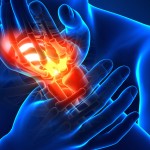HEALTH NEWS YOU CAN USE-Eating Well
By: Dr. Robert Neposlan
Inflammation is your body’s natural response to outside invaders it perceives as threats. Specifically, it’s a process in which your body’s white blood cells protect you from foreign substances such as bacteria and viruses.
However, when your body is in a chronic state of inflammation, the inflammation can lodge in your muscles, joints and tissues. In my practice I have seen countless cases where regardless of how many adjustments I perform, techniques I use, or how hard I try, I just can’t find a solution to completely eliminate a person’s pain. As I researched the subject of inflammation, I was not surprised to see the link between diet and chronic pain. I had long suspected a connection. After all, if certain foods can cause an allergic response (inflammation) in some individuals, then why could it not cause a pattern of pain symptoms in others? As I researched the subject I found that chronic inflammation was not only linked to allergies and pain but also to other health conditions.
In fact, inflammation is associated with a host of diseases like Crohn’s disease, colitis and arthritis, and many of them are life threatening. As pathologist Ed Friedlander, M.D., says… “Probably your own death will be caused by your last inflammatory response … Whole body inflammation, formerly a popular term used especially by surgeons for the patients who they could not save, is going out of fashion in favor of multiple organ failure.”
Ed Friedlander, M.D., says… “Probably your own death will be caused by your last inflammatory response … Whole body inflammation, formerly a popular term used especially by surgeons for the patients who they could not save, is going out of fashion in favor of multiple organ failure.”
Here’s a brief list of how chronic inflammation can affect “other systems” including your organs:
- Inflammation of the heart (myocarditis): Shortness of breath or fluid retention
- Inflammation of the small tubes that transport air to the lungs: Asthma attack
- Inflammation of the kidneys (nephritis): High blood pressure or kidney failure
- Inflammation of the large intestine (colitis): Cramps and diarrhea
- Inflammation of the sinus cavities: Allergies
Diet and Inflammation
There are many factors besides diet that influence inflammation. Things like emotions, and lifestyle (sedentary) can also contribute to inflammation. Hopefully as you read these articles, you see the pattern. Health or the lack of it, including inflammation, is all about the choices we make in the way we live, eat, move and think.
Since the focus of this week’s article is again on eating well, we’ll focus on foods. Foods are naturally pro-inflammatory or anti-inflammatory, so depending on what you eat, you may be fueling inflammation in your body. What foods cause inflammation? Processed meats and sausages contain chemicals such as nitrites that may cause inflammation and chronic disease. Consumption of junk foods, excess red meat, sugar and fast foods also encourages inflammation in the body. This is in part due to the unhealthy oils used in preparing and processing these food items, particularly trans fats/oils (hydrogenated oils), and saturated fats/ oils.
Saturated fats are also present in meats, dairy products and eggs. Although, all of these items are important source of minerals and vitamins, they may be harmful in people with heart problems. These foods also contain fatty acids known as arachidonic acid. Although some arachidonic acid is crucial for health, a high concentration in the diet can aggravate inflammation. Dairy should be kept to a minimum (if at all) and meats should be lean with minimal fat. As far as sugar is concerned, too much can have devastating effects on human health, as I am sure you have noticed in previous HEALTH NEWS YOU CAN USE articles.
Vegetables have long been recognized for their rich nutrient content. However, some (nightshade) vegetables like potatoes, tomatoes and eggplant may worsen the pain from inflammation. These vegetables contain a chemical alkaloid called solanine. This chemical is known to initiate pain in some people. Interestingly this chemical is also found in tobacco. I can’t tell you how many smokers I’ve seen with “chronic” unresolved pain.
Here is a summarized list to help. As always do the best you can. Next week we’ll share some tips on implementing “anti-inflammatory” foods into your life.
| Bagels | Egg rolls | Margarine | Relish |
| Breads | Fast food | Molasses | Rice |
| Candy | French Fries | Muffins | Sherbet |
| Cake | Fruit juice | Noodles | Shortening |
| Cookies | Fried foods | Pancakes | Snack foods |
| Cereals | Flour | Pastry/Donuts | Soda |
| Cornstarch | Granola | Pie | Sugar |
| Corn bread | Hard cheese | Pita bread | Tacos |
| Corn muffins | Honey | Pizza | Tortillas |
| Corn syrup | Hot dogs | Pasta | Waffles |
| Crackers | Ice cream | Popcorn | Tomatoes |
| Croissants | Frozen yogurt | Potatoes | Egg Plant |
| Dairy | Jams | Pudding |
As I suggested earlier, hopefully you are beginning to see the pattern. To a large extent, modern illness including chronic inflammation is a product of lifestyle choice. If you’re experiencing chronic pain or any condition related to “whole body” inflammation then avoiding these foods as much as you can is a step in the right direction.
Until next week,
Eat well
Dr. Rob
